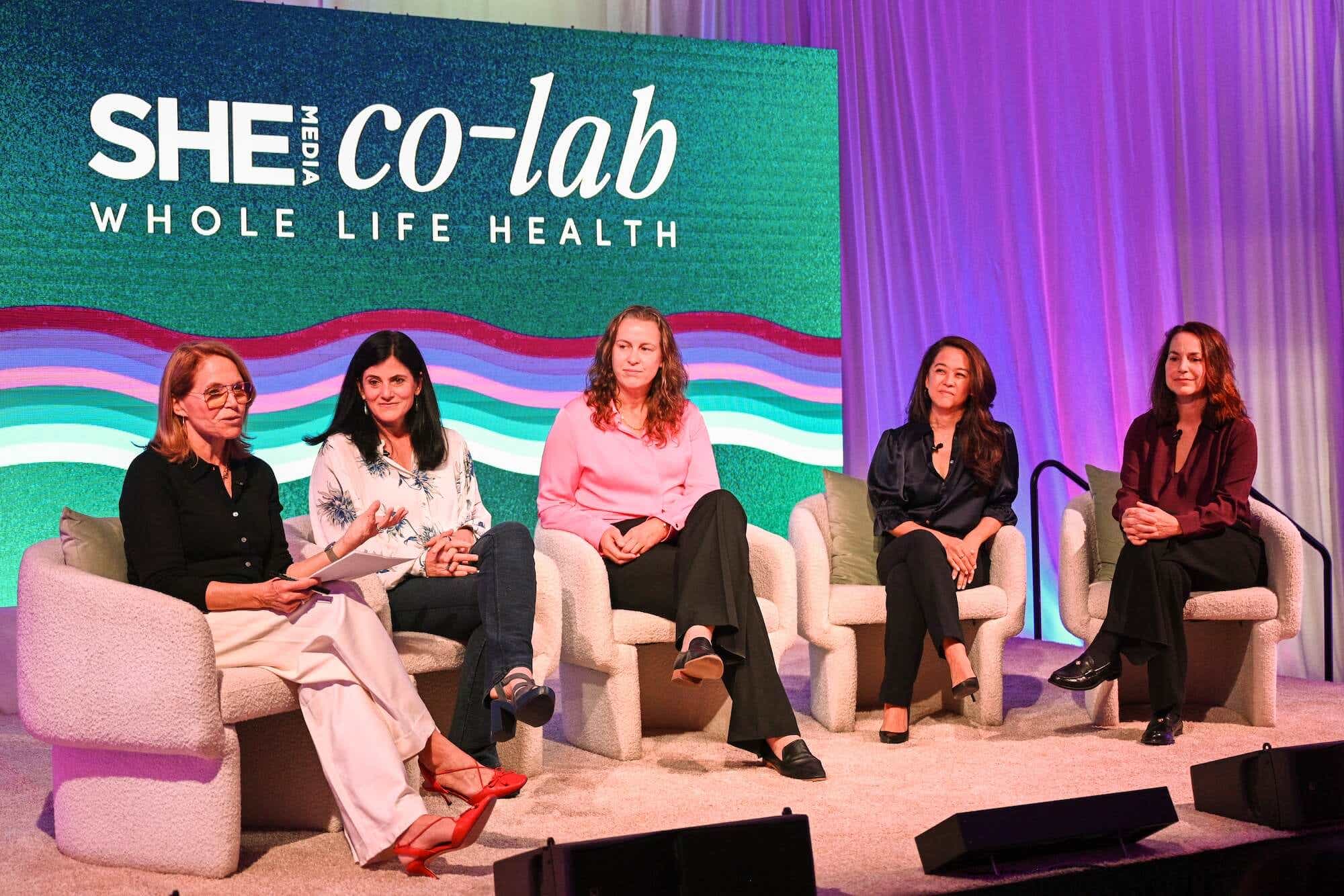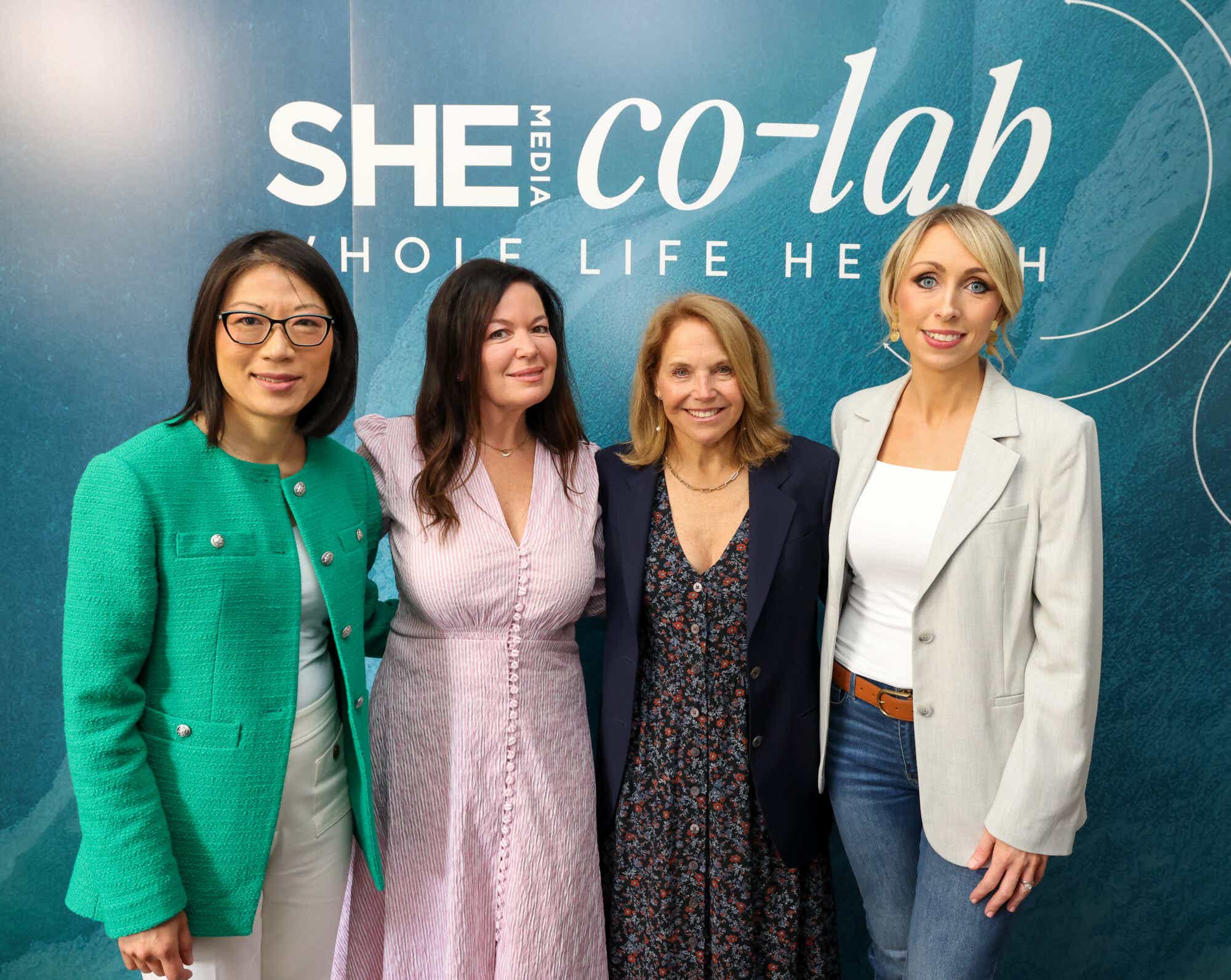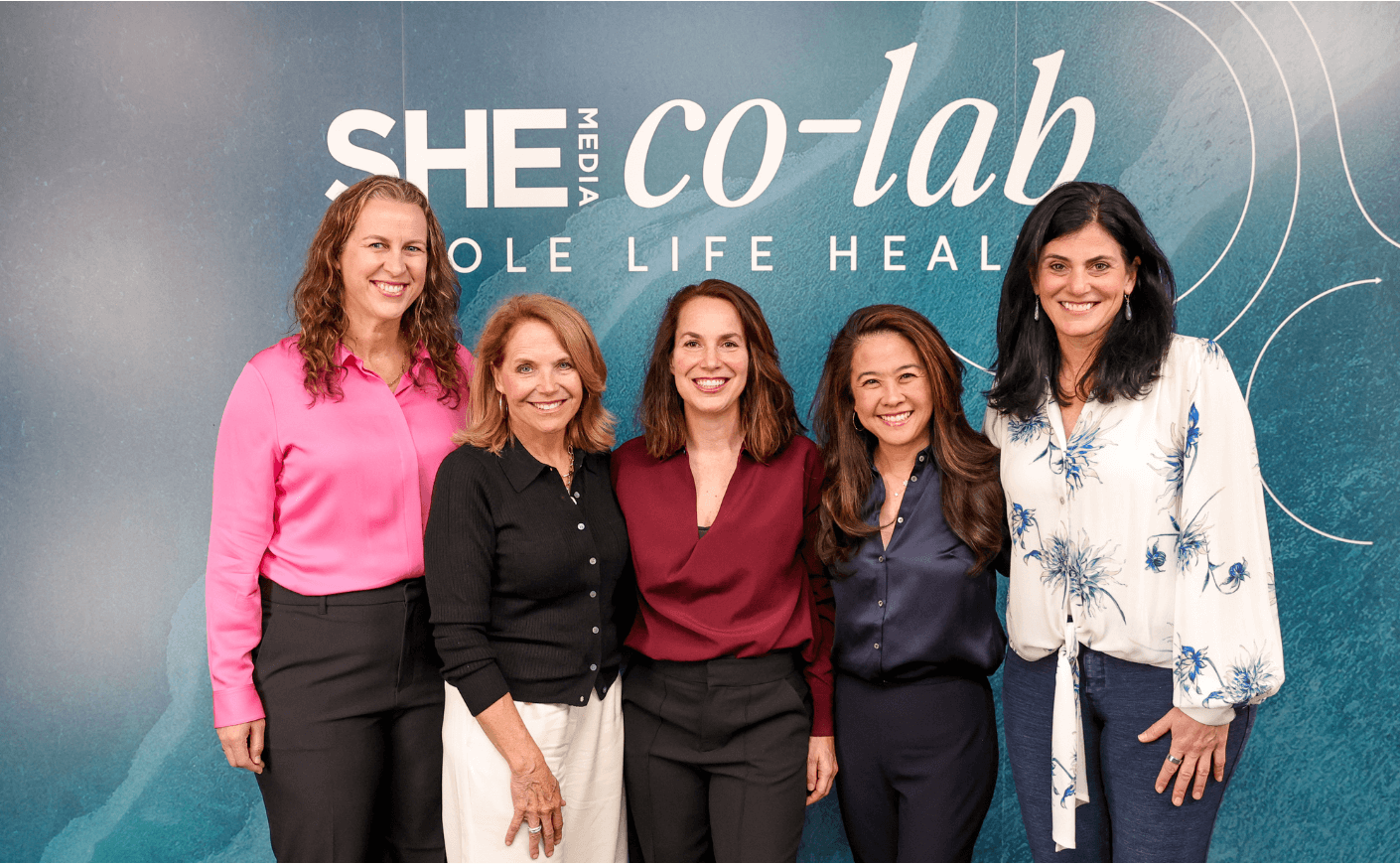If you’re familiar with South by Southwest (SXSW), the annual conference held in Austin, you probably know it as an event where the most influential people in film, media, and music flock to discuss new projects, showcase the latest innovations in their fields, and generally strut their stuff. So Katie knew she had to make her way down south to chat with experts and game-changing brands, to learn about the incredible work they’re doing in the health space.
As a dedicated cancer-awareness advocate, Katie’s fascinated by the newest innovations in disease research and prevention. That’s why her first stop at SXSW was hosting a panel with the Chan Zuckerberg Initiative (CZI), whose mission is to support the science and technology that will make it possible to help scientists cure, prevent, or manage all diseases by the end of this century. It takes an immense amount of money and time to find treatments or cures for illnesses — and the more well-known a disease is, the easier it is to raise funds. But for the 400 million people around the world with a rare disease, it can often feel like they’re struggling alone: Fewer than five percent of these diseases have any FDA-approved therapies. That was the driving force behind the creation of CZI’s Rare As One Network, which supports patient-led organizations fighting to find cures for rare diseases.
To learn more about Rare As One, Katie sat down with Tania Simoncelli, Vice President of Science in Society at CZI. They were joined by three women working to accelerate rare disease research: Tara Zier, who founded the Stiff Person Syndrome Research Foundation after being diagnosed with the disease in 2017; Susan Dando, who became executive director of the Smith-Kingsmore Syndrome Foundation shortly after her daughter was diagnosed with the condition; and Christina Miyake, MD and director of the Genetics Arrhythmia Program at the Baylor College of Medicine, who collaborates with Rare As One patient organizations to study these conditions and help search for treatments and cures.
Rare As One’s approach is, well, rare: It partners with organizations run directly by the people impacted by these diseases. As Katie explains, “Nobody is more passionate, committed, and driven than someone with firsthand experience with the disease. I know I felt that way when my husband died of colon cancer — I felt like I had to be the one to do something about it.” Katie sees this drive reflected in Zier, saying, “This woman has been through hell, and she’s still standing, still fighting, and she’s doing something about it.”
Zier describes her journey to a diagnosis as “an odyssey,” an experience that’s all too common for people with rare diseases. After being hospitalized for pneumonia in 2014, Zier’s health began to spiral out of control: “I was experiencing really frightening symptoms. People [with stiff person syndrome] can have muscle spasms so severe, they break bones, dislocate joints, and develop life-threatening breathing problems. I knew something was seriously wrong with me, but doctor after doctor told me it was all in my head.” Zier’s symptoms became so debilitating that she could no longer work or care for herself, let alone her two children. In 2017, Zier was referred to a neurologist who finally provided her with a diagnosis. When she learned her disease had few treatment options and no cure, she decided to take matters into her own hands: “I started the Stiff Person Syndrome Research Foundation to support research for better treatments and a cure, but also to show my children that no matter what hand you’re dealt in life, you can still make a difference. That’s what gets me out of bed.”
Like Zier, Dando describes her journey to get a diagnosis for her daughter Carmen as an odyssey: “Carmen has a lot of traits that are relatively common in autism and she was diagnosed with it at age four,” says Zier, “But the big difference is that she doesn’t sleep. We would put her to bed at 7:30 but she wouldn’t fall asleep until 10:30, and then wake up at 1:00 in the morning. The more we tried to get her to sleep, the more violent she became. She would hurt herself and us.” After pushing for a full genetic testing panel, Dando learned Carmen had Smith-Kingsmore syndrome, a rare genetic disease that causes intellectual disability, limited communication, and sleep disorders. And it’s a condition for which there’s no cure.
Women like Zier and Dando are the driving force behind Rare As One. As Simoncelli explains, “We provide these patient-led organizations with funding, but we also help them to build their organizational capacity. Neither [Zier or Dando] came to this with any training, so we’re there to assist with tasks like building a scientific advisory board, training them to work with researchers, and connecting them with treatment developers. And perhaps most importantly, we give the leaders of these organizations opportunities to collaborate with one another.”

The group from CZI weren’t the only health advocates Katie spoke with at SXSW. In a panel with Lifeway Foods, Katie spoke with Nancy You, MD, director of the MD Anderson Young Onset Colorectal Cancer Program, Susan Bullman, MD, an associate professor in the Department of Gastrointestinal Medical Oncology at the University of Texas, MD Anderson Cancer Center, and Julie Smolyansky, CEO of Lifeway Foods, about the alarming uptick in colorectal cancer and how it relates to gut health.

To get to the bottom of this trend, Dr. Bullman says we first need to understand the microbiome: “The microbiome is a collection of microorganisms that reside on and within our bodies, primarily in the colon. But a shift in the microbiome can create problems, and may contribute to colon cancer.”
Our dependence on ultraprocessed foods, says Dr. Bullman, could be a contributing factor in this uptick of cancer diagnoses among young people: “Industrially manufactured foods, which contain things like chemical modifiers and additives that are typically low in fiber and good sugars, can lead to inflammation of the microbiome.”
Everyone on the panel did agree that cutting ultraprocessed foods out of your diet is good for your health. And Dr. Bullman says that if you’re concerned about your microbiome, adding probiotic foods to your diet, like Lifeway Kefir, which contains 12 live and active probiotic cultures and high-quality bioavailable nutrients, can introduce beneficial microorganisms that’ll help balance your gut health. “Having a diverse gut microbiome can aid in digestion, help maintain your gut barrier, and may even reduce your risk of developing certain diseases,” she explains. Everyone in the audience that day got to add a bit of diversity to their own microbiomes, as they were each given a bottle of Lifeway Kefir to try, giving everyone a firsthand experience of how easy and delicious it is to nourish gut health.
Julie Smolyansky shared her thoughts on the importance of quality, bioavailable protein. “When you talk about quality protein, fermented dairy products like Lifeway Kefir stand out. It’s not just about the protein, but about the natural probiotics that are encapsulated in the dairy itself. These probiotics are able to survive the acidic environment of the digestive tract, which is key to supporting gut health. Unlike ultraprocessed, lab-created ingredients, fermented dairy products have been passed down through generations for thousands of years for a reason. They work.”
Whether it’s pushing for rare-disease research or tackling the rise in colorectal cancer, the women leading these disease-prevention efforts are making a massive impact. And as Katie’s experience shows, change isn’t just about scientific developments. It’s about the people who’ve lived these challenges — and are determined to make a difference.









